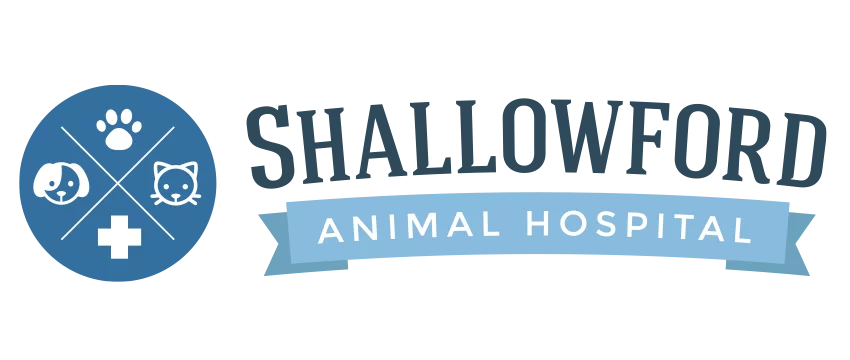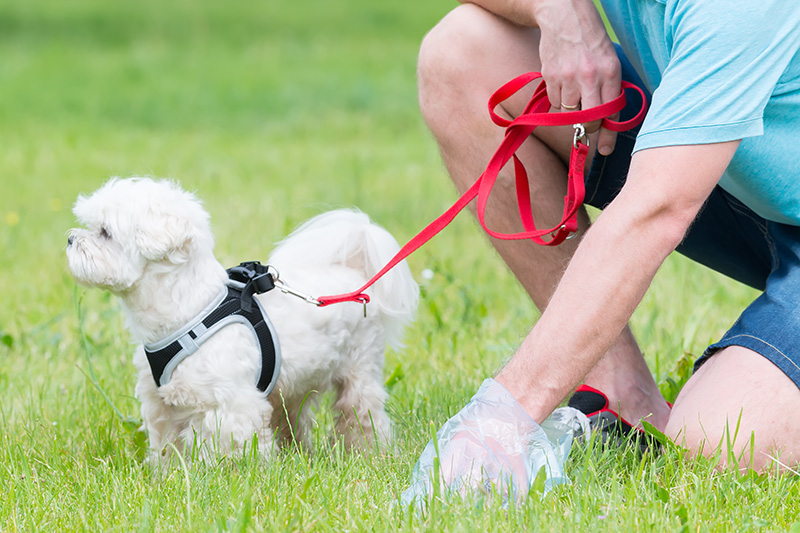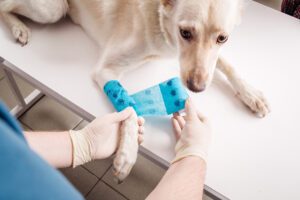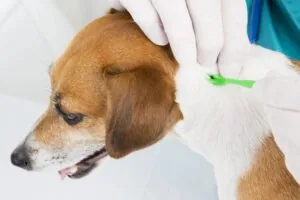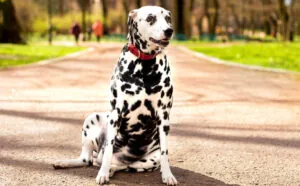Coccidia
What is Coccidia?
Coccidia is a single-celled organism that can infect cats and dogs through contact with fecal matter containing the parasite. A pet can become infected by eating contaminated soil, drinking contaminated water, or licking paws and fur that has come into contact with infected feces.
These tiny-celled parasites live in the wall of the intestine. Coccidia is most common in puppies but can also infect adult dogs as well as cats. This causes severe diarrhea and dehydration. In some cases, infection can even lead to death.
What Are the Symptoms of Coccidia?
Here are the most common signs of coccidia in dogs and puppies, and what you might see if a dog is severely infected.
Coccidia symptoms include:
- Diarrhea that’s watery or bloody or has mucus
- Weight loss
- Dehydration
Severe signs of coccidia include:
- Not eating (anorexia)
- Vomiting
- Depression
- Death
However, some dogs with coccidia can be asymptomatic and not show any signs of being infected. These infected dogs can still shed the egg-like structure in their feces and infect other dogs or puppies, so it’s important that your dog has a fecal exam at their annual and biannual vet visits.
How did my dog become infected with Coccidia?
Your dog most likely became infected with coccidia from swallowing oocysts (immature coccidia) that are found in dog feces and soil contaminated with feces. Dogs may also become infected indirectly by eating a mouse that is infected with coccidia.
How is Coccidia diagnosed?
Coccidia is usually diagnosed by performing a fecal flotation test to look for oocysts under the microscope. Oocysts are smaller than intestinal worms, so it’s important that vets are especially thorough in their analysis. Blood tests may prove necessary for discovering certain uncommon types of coccidia.
How is Coccidia treated?
Your veterinarian may prescribe a sulfa-type antibiotic, which is usually given for 5-25 days. In severe infections, it may be necessary to repeat the treatment. If the diarrhea is severe and your dog is dehydrated, other medications and treatments, such as IV fluids, may be required. If the sulfa-type antibiotic is not effective at clearing the infection, other treatments are available; your veterinarian will discuss these treatments with you. Some dogs may not require much in terms of medical treatment, depending on the severity of the condition.
Reinfection of susceptible dogs is common so environmental disinfection is important.
Clean Up After Your Dog
Coccidia can remain infectious in the environment for several months.
You must thoroughly clean up your dog’s feces, and also clean the ground. This will help prevent other dogs from being exposed AND prevent your dog from being reinfected.
Clean up as much of the feces as you can with a bag and paper towels. You can then use an antibacterial spray or bleach to kill any remaining bacteria.
Can Coccidia Be Transmitted From Dogs to Cats?
Dogs cannot pass coccidia to cats, even if a cat is exposed to the feces of a dog with coccidia. Coccidia in cats is caused by a different host-specific coccidia parasite.
Can Coccidia spread to me or my family?
The most common species of coccidia in dogs does not have any effect on humans. However, less common species of coccidia can potentially infect humans. One species in particular, called Cryptosporidium, may be transmitted to people. This parasite, which may be carried by dogs and cats, has also been found in the public water supply of some major cities.
How to Prevent Coccidia in Dogs and Puppies
Fecal exams by a veterinarian are the best way to check for coccidia. These should be done at your dog’s yearly visit or if they are showing clinical signs, especially diarrhea.
Try to avoid environments with dogs or puppies that are currently infected with coccidia. If your dog is a puppy, avoid high-risk areas like dog parks.
Organize puppy playdates with healthy dogs in controlled, safe environments.
Share This Post
Recent Posts
About Shallowford Animal Hospital
Shallowford Animal Hospital and The Pet Spa at Shallowford are dedicated to the exceptional, compassionate care your pet deserves. Pets hold a very special place in our families, and we treat yours like our own.
